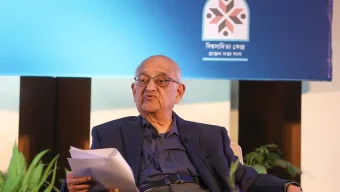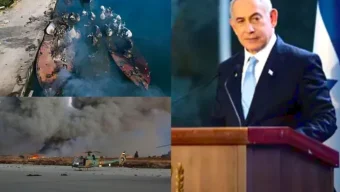newsup
May 26, 2022


ডেস্ক রিপোর্ট : অবিশ্বাস্য—সাম্প্রতিক সময়ে ম্যানচেস্টার সিটির প্রতিটি ম্যাচ শেষে এই শব্দটি যেন ঘুরেফিরে বারবার লিখতে হচ্ছে। ইউরোপের অন্যতম প্রভাবশালী

ডেস্ক রিপোর্ট : ‘আজ কি রাত মজা হুসনো কি’, ‘স্ত্রী-২’ সিনেমার গানের সঙ্গে নতুন এক তামান্না ভাটিয়াকে আবিষ্কার করেছিলেন সিনেজগতের

ডেস্ক রিপোর্ট : সবার জন্য মানসম্মত শিক্ষা নিশ্চিত করতে বা শিক্ষার মানোন্নয়নে শাসকশ্রেণির কোনো ভূমিকা দেখছেন না অধ্যাপক রেহমান সোবহান।

ডেস্ক রিপোর্ট : নিউইয়র্কে বাংলাদেশ কনস্যুলেট জেনারেলে ১৮ ডিসেম্বর আন্তর্জাতিক অভিবাসী দিবস-২০২৪” ও “জাতীয় প্রবাসী দিবস-২০২৪ “ উদ্যাপন করা হয়।

ডেস্ক রিপোর্ট : বাশার আল-আসাদ সরকারের পতনের পর এখন পর্যন্ত সিরিয়ায় পাঁচ শতাধিক হামলা চালিয়েছে ইসরায়েল। দেশটির সামরিক লক্ষ্যবস্তুতে বিমান

ডেস্ক রিপোর্ট : মার্কিন গায়িকা ও অভিনেত্রী সেলেনা গোমেজ ব্যক্তিজীবন নিয়ে সবসময় আলোচনায় থাকেন। সম্প্রতি প্রেমিক বেনির সঙ্গে বাগদানের খবর

ডেস্ক রিপোর্ট : ইন্টার কন্টিনেন্টাল কাপের প্রথম আসরের শিরোপা জিতেছে রিয়াল মাদ্রিদ। এর মধ্য দিয়ে দারুণ এক অর্জন সঙ্গী হয়েছে

ডেস্ক রিপোর্ট : লেখালেখি একটি আর্ট, একটি নান্দনিক শিল্প। কুরআন ও হাদিসের দৃষ্টিতে লেখনীর গুরুত্ব অপরিসীম। লিখতে হয় কলম দিয়ে।